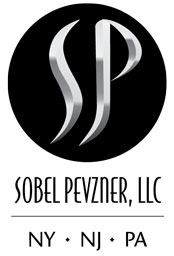OSHA’S POST-ACCIDENT RULES MAY NOT BE ON HOLD JUST YET
On May 12, 2016, OSHA issued a Final Rule with the good intention of protecting employees who report a work injury from unlawful employer retaliation. However, this Rule had the effect of limiting many employers’ post-accident drug testing policies. Essentially, OSHA’s May, 2016 Rule frowns upon automatic post-accident drug testing of an injured employee and views it as a form of adverse action that can discourage employee accident-reporting. The comments to the Rule provide examples of instances where an employer’s policies constitute a violation of privacy or deterrence of accident reporting to wit: post-accident drug testing for accidents where an injury or illness is unlikely to have been caused by the employee’s drug use and testing methods that do not identify impairment but only use at some time in the employee’s recent past.
In July of 2016 Federal lawsuits were filed in the U.S. District Courts of Oklahoma and Texas challenging the enforcement of OSHA’s post-accident Rules. OSHA responded by requesting the Courts to put these cases on hold while the Agency reconsidered, amended, or revised portions of the Rule. As of October 10, 2017, OSHA advised the Courts that revised Rules have been drafted, however, they are not yet ready for finalization or publication.
While this litigation was stayed and OSHA attempted to amend its post-accident Rules regarding employers’ drug testing policies, employers were under the impression that OSHA’S enforcement of the May, 2016 Final Rule was, likewise, put on hold. Unfortunately this was not to be the case.
Throughout 2016 and 2017 more than a dozen citations have been filed by OSHA against employers regarding their post-accident drug testing policies and even more employers have been threatened with citation unless the employer eliminated its post-accident drug policy altogether. Even employers that changed its post-accident testing after May of 2016 to comply with OSHA’s rule received pressure to entirely eliminate its testing policies. Clearly, OSHA’s post-accident rules are alive and well notwithstanding the stay put in place by the Federal Courts.
How Does this Affect NY Private Employers?
OSHA pursues enforcement of its Rules in jurisdictions that do not have OSHA-Approved State plans for private employers. Approved State plans allow the States to enact and enforce their own OSHA approved plans without Federal Agency involvement.
New York and New Jersey have Approved State Plans that cover only State and Local government employees. As such, private employers are subject to Federal Agency enforcement of OSHA Rules and Regulations. In short, NY private employers are subject to OSHA’s enforcement of the May, 2016 Rule regarding post-accident drug testing.
What Does this Mean for Private Employers’ Drug Testing Policies in NY?
The firm strongly recommends that all private employers in New York review their drug testing policies. OSHA appears to be going after employers that have automatic, non-discretionary, post-accident drug testing policies for all employee injuries and illnesses. It is imperative that the employer have a clear basis for requiring an employee to undergo post-accident drug testing, such as witness statements from supervisors or coworkers that the injured employee appeared intoxicated immediately before the injury occurred.
The OSHA Rule also provides an exception that “If an employer conducts drug testing to comply with the requirements of a state or federal law regulation, [such as a state workers’ compensation Drug Free Workplace Act], the employer’s motive would not be retaliatory and the final rule would not prohibit such testing.” In short, the exception allows employers to conduct post-accident drug testing if doing so complies with a State or Federal law requirement.
The New York State Department of Labor administers a mandatory workplace safety and loss prevention programs for employers with (1) an annual payroll of over $800,000.00 and (2) a Workers’ Compensation experience modification rating of more than 1.20. Those private employers that do not qualify for the mandatory program can volunteer for the Workplace Safety Loss Incentive Program, which provides the incentive of reducing the employers’ cost of workers’ compensation premiums.
These mandatory and voluntary workplace safety programs include state-approved drug testing policies and adherence to same is the best defense in avoiding the dreaded citations from OSHA’s enforcement of its post-accident rule, for both large and small employers.
To see the text of OSHA’s May 12, 2016 Final Rule, see https://www.osha.gov/laws-regs/federalregister/2016-05-12
For more information regarding NYS’s Department of Labor Workplace Safety programs, see https://labor.ny.gov/workerprotection/safetyhealth/DOSH%20Wrkplc%20Sfty%202.shtm


